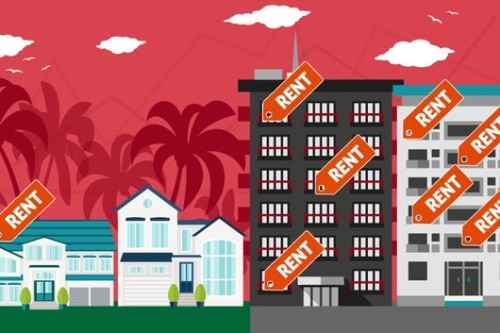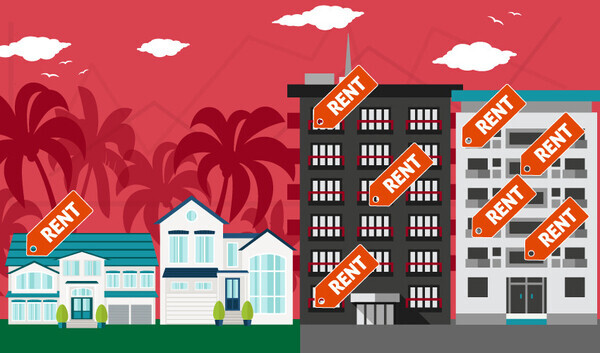- Free Valuation
- Competitive Sales Commission Fees
- Free Mortgage Advice

posted 10th January 2023

As the year 2023 comes and goes, what are the considerations for being a landlord in the UK?
- Shortage of rental housing and the overall increase in rents
Due to pressures from the cost-of-living crisis, there are still a large number of people who may exclude themselves from the first-time homebuyer market in the coming months. As a result, rental demand is likely to remain high in 2023.
In 2022, the shortage of available housing and increasing demand are also causing rental prices to go up as people compete for available properties. Last year, the average rent for people moving and starting new leases increased by 12%. In major cities such as Manchester, rents have also risen by 12-15% in the last 12 months. In 2023, we expect rents in and around major cities, such as Manchester, to remain undiminished in the face of rising demand.
- New regulations will provide more protection for tenants
Last June, the UK government proposed a white paper on the private rented sector in England, which focused on prohibiting no-fault evictions of tenants, which is the main cause of homelessness in the UK. The white paper includes several new recommendations for the privately rented sector, such as requiring landlords to improve the quality of housing, as many privately rented homes, are in poor condition.
Other measures include preventing arbitrary and unreasonable rent increases and allowing tenants to keep pets in their homes. The white paper has been met with much controversy, and it's unclear when it will be enacted, but it is likely that it will move forward this year and landlords should be aware of the changes. Additionally, on December 1, a new Housing Tenancies Act was introduced in Wales that provides more protections for tenants' rights, such as extending the notice period for "no-fault" evictions from two months to six months.
- Capital Gains Tax Deduction to be Cut
Beginning in April, the capital gains tax exemption for landlords selling the property will be significantly reduced. This depends on when the property is sold in 2023.
Currently, sellers are entitled to a £12,300 profits tax exemption on capital gains tax paid. However, from 6 April this year, this allowance will be reduced to £6,000. By April 2024, it will be further reduced to £3,000.
- Changes in energy efficiency level requirements
In the United Kingdom, there is a focus on improving the energy efficiency of properties through the Energy Performance Certificate (EPC) rating system. The system assigns a score on a scale of A-G, with A being the most energy efficient and G being the least. The score is based on factors such as insulation and energy consumption.
A high score leads to a higher rating. For example, a home with an A rating is considered modern and energy-efficient, while a home with a G rating is considered very old and in need of major renovations to improve energy efficiency.
Currently, in order to be used for rentals, properties must have a minimum energy efficiency rating of E on their Energy Performance Certificate (EPC). However, the government is planning to implement new regulations that will require all new rental properties to have a C rating by 2025.
It may affect many landlords, as there are currently a large number of rental properties in the private rented sector with ratings below C, which means that many landlords will need to invest money to upgrade their properties to meet the new standard.






